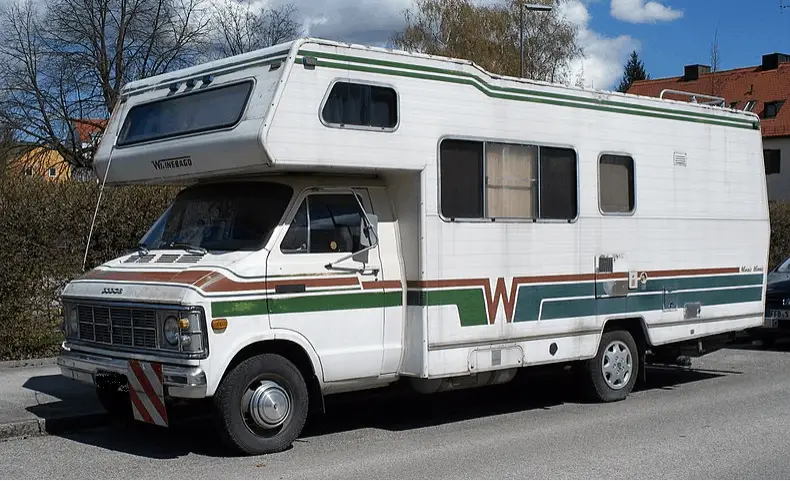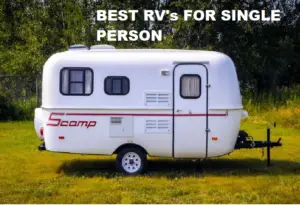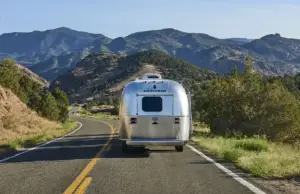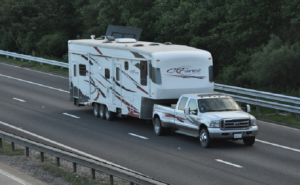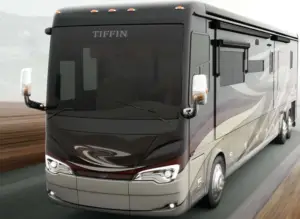Basic RV insurance can cover collision, liability, comprehensive. But RV insurance can cover a multitude of other things also.
Whether you own a luxurious class A RV or a fifth wheel or a travel trailer, getting RV insurance is critical. This keeps you free from all worries. Let’s have a look at the plethora of insurance coverage available for your RV or travel trailer.
1. Liability coverage
Liability insurance protects you when you cause an accident leading to injuries to others and are required to pay for the damages, and medical bills.
This basically involves bodily Injury (BI) and property damage (PD).
It is mandatory in nearly every state. Liability insurance covers all the costs of repairing and replacing the vehicle you cause damage to. If the driver of the other vehicle is injured, then this insurance will pay for the emergency transport, medical care, and follow-up care too.
Your liability insurance will also cover the legal costs associated with the suit filed against you by the driver of the damaged vehicle. If you use your RV both as your living space as well as a vehicle, then your trailer’s liability insurance should be designed to provide you cover for the claims akin to those you would come across in a residential home.
Your liability insurance will cover all your mistakes, acts, and omissions. If you fail to stop at a stop sign or act irresponsibly, you are legally entitled to pay the costs of injuries you inflict to someone, funeral costs, and property damages of those involved in the accident.
The amount that will be covered will depend upon the limits you set at the time of purchase of your policy. If the damages incurred by the other vehicle are more than your defined limits, you will have to pay the additional costs yourself. To avoid this, you can buy an insurance policy with a higher premium.
2. Collision or accident coverage
If you happen to be in an accident with another vehicle, regardless of who is at fault, your RV insurance will cover for the damage done to your RV. Collision coverage is mandatory if you have financed or leased your travel trailer.
Just like your automobile insurance policy, this type of coverage protects the structure and the interior features of your RV.
3. Comprehensive coverage
This pays you for all the non-collision damages to your RV including damage from natural disasters like storms, floods, hail, and fire, vandalism, and theft. Comprehensive policies are not always same so, every non-accidental problem may not be covered.
4. Contents cover
This gives you protection for all your personal belongings which you take while traveling in your RV like TV, computer, clothes, and any other valuables. Do confirm with your insurance agent regarding what is included in your cover.
You can get protection for equipment and accessories attached in your RV or motorhome like satellite dishes and awnings.
5. Total Replacement cost
This coverage basically gives you the amount, if RV is destroyed or becomes unusable due to other reasons. The amount you will get will be equivalent to its original value or the same model price at that time.
Its very confusion coverage and you need to talk to your agent to get all doubts cleared. RVs depreciate a lot and the amount that you get depends on depreciation, then it could vary a lot.
6. Uninsured drivers
This coverage will help protect you against motorists who don’t have the liability insurance or the money to pay for the damages they cause to your RV, your passengers, or you. It can also cover hit-and-run accidents.
7. Underinsured drivers
Every state has its own underinsured and uninsured laws. So, the coverage is dependent upon the policy coverage limits and provisions. Many a times RVers buy insurance coverage that may not be sufficient.
Underinsured covearge comes into picture when the accident isn’t caused by you. It basically protects you when the opposite party’s coverage isn’t sufficient enough to pay for your medical bills, accident damage repair. Underinsurance can be worth it if you own a costly RV.
8. Personal affect coverage
This type of coverage is a specialized one and has to be clearly discussed with the company. It provides coverage for your personal costly items that you carry inside the RV.
This type of coverage is mostly suited for those who live full time in RV. Since you will be going from place to place, there are chances that your costly items may get stolen, lost. To protect them you can insure them under personal effect coverage.
9. Medical bill payment coverage
Regardless of who is at fault if your RV is involved in an accident, the med pay will cover all yours as well as your passenger’s medical bills.
This coverage will pay for all your medical bills. It will also cover bills of other people involved in the accident. Most people will have separate medical insurance, but having this one can be an added advantage. It will come at a lower cost.
10. Pet injury
This covers the veterinary fee for any injury to your pet and even the cost of replacement in case of their death.
11. Towing and Roadside breakdown coverage
This protects you against the towing and labor costs as well as transportation, lodging, and meals. In case your travel trailer or fifth wheel meets with an accident and needs to be towed, it will be covered by the auto policy of your RV and you won’t require a separate towing insurance.
However, some insurance policies only partially cover the RVs. If you have any doubt or questions, get in touch with your insurance company. Some companies also pay for hotel stays in case your RV is under repair.
There are others who would offer the total cost of your RV. The cost of towing a trailer is usually exorbitant because they need special tow trucks.
Roadside assistance will cover everything from a flat tire, battery failure, getting out of a jam or towing for mechanical or electrical breakdowns and repairs.
Some policies may offer cover, if your RV gets stuck in mud, water, or snow, when it is within 100 feet of the road. Repairing the RV or motorhome on the road is much more expensive than repairing stationary one at home.
If you are insured for the breakdowns, you can save a lot of money for many years. In case your RV needs fuel or tire change or a tow, you can get round-the-clock roadside assistance with your RV insurance.
It also covers trip-interruption expenses that can occur when you are more than 50 miles away from your home.
Other special coverages
There are many other specialized coverages that all companies may not provide. This includes coverage related to RV storage, coverage for custom equipment.
One can also get coverage for vacation liability, Campsite coverage, emergency expenditures, sound system coverage, any labor, or towing costs coverage.
Full-time coverage. Those who RV full time need special considerations and many companies provide custom made coverage for them. Some companies also provide rental coverage. This will be part of comprehensive or collision coverage where your RV or motorhome rental costs are covered.
Does trailer insurance cover water damage?
Many insurance policies don’t include water damages, but there are some that cover some aspects of water damage.
Insurance companies are not required to provide coverage for water damage to travel trailers or any other recreational vehicles. In case you have an automobile insurance for your RV, or if your insurance policy has specific exclusions, water damage to your RV may not be covered.
If a thunderstorm knocks down a tree’s branch on your car’s window which further gets damaged by the rain, your insurance policy should protect you – if you have the comprehensive coverage.
But there are other situations which may leave you unguarded. There are lots of water damage exclusions that your insurance policy will have, and they are given hereunder:
- Any abrasion, or wear and tear.
- Damages as a result of manufacturer defects in your RV
- Freezing cold conditions
- Rust, erosion, or dry rot
- The build-up of snow and/or ice
- The absence of routine maintenance for a long time.
- Any prior damage in case of purchase of an old RV
If your RV is damaged due to any of the above reasons your general insurance company will deny any claim. If you want a full water damage policy for protection against these types of issues, then speak to your insurance company.
RV Insurance is a big market and companies come with various custom made packages. Depending on your needs you should try and get the best package possible.
Why does one need a water damage coverage?
If you live fulltime in your travel trailer, you should consider taking a comprehensive insurance policy with complete water damage coverage. But, if you use your RV only now and then, you may not require a water-damage coverage beyond your regular insurance policy.
Then, if you are traveling in arid regions, which get scarce rain and no snow, you may not need a water-damage coverage. If you have an old RV, then you would need a water damage cover due to abrasion.
When not in use, if you keep your RV in an indoor heated facility, water damage coverage would be beside the point, but if your RV stays outdoors when not in use, then your RV will be at risk.
The water damage must be considered sudden and accidental, for it to be covered. This would include rain, or flooding, or failure of hot water heater, plumbing system, or if any of the water-consuming appliances are out of whack.
There are lots of factors which determine how much and what kind of damages will be covered including the age, make, and model of your RV. Older RVs are more vulnerable to mechanical and electrical problems, and hence need more coverage.
Claim Water damage at the earliest
Make sure you regularly inspect your RV for any leaks or water damage. You should can quickly make an insurance claim and get the problem rectified as soon as possible. Always get your RV tested at repair shops. You can do it yourself after every big trip.
Whether your RV is not in use and is stored, or it is on the road, it is a good idea to test your RV for leaks on at least a monthly basis.
As your RV ages it depreciates in value and becomes more vulnerable to damages. This happends as a result of continuous movement, heavy road vibrations, and exposure to extreme weather conditions.
Be careful of low hanging trees and branches and avoid parking under them. The seemingly few scratches may become deeper overtime and lead to leaks. Always check the weather before heading out on a long trip.
Avoid extreme conditions like hail, heavy snow, and rain. Slight damages in your RV can be detrimental for the entire structure of the trailer.
Your RV is made of moving parts and is always moving, so continuous exposure to water can lead to rot and rust and the repair costs would be exorbitant.
How much can your RV insurance cost?
The cost of your camper insurance can vary from a few hundred to thousands of dollars every year.
A lot of variables can influence your insurance cost such as your driving history and where you live. There are myriads of RVs, so it is virtually impossible to get a typical cost without knowing the make and model of your RV.
There will be differences in the insurance rates of the same new models and the same makes based on abrasion. If you have more experience under your belt as a RV driver the less risky you will be to insure.
An insurance company can deem you at greater risk if you have been involved in many accidents or have got a lot of traffic tickets.
Also, if you live in mountainous regions or places which experience severe weather conditions like blizzards and thunderstorms, then your insurance rate will most likely go up, as these places have more dangerous road conditions.
Your insurance rate will also be higher in case you live in an area with high rate of accidents and thefts.
If your travel trailer is also your residence, then your insurance cost will be more because the risks of your house are linked to your RV. An occasional RV driver may not encounter as many risks as a full-timer.
Average Insurance cost by RV Type
Approximate RV coverage cost by RV type as below. This can vary on different factors that I have discussed below.
- Class A Motorhome : $1200 – $4000 annually
- Class C Motorhome : $500- $2000 annually
- Travel trailer : $180 – $900 annually
- Fifth wheel : $300 – $1200 annually
- Class B Motorhome : $300 – $1400 annually
- Pop up Camper : less than $200 annually
Here is th summary of what influences a RV or travel trailer insurance cost
- RV age. How old the RV is and how its current consdition is.
- Drivers experience. An RV owner who has long history of driving RV will get good deals then a one who is just starting.
- Previous accident history of the RV owner.
- Driving and weather conditions.
- How much the RV is going to be used. If using for full time then the costs will go up.
- Types of coverage you want to include.
Will my car insurance cover the travel trailer?
In most cases liability insurance provided by auto insurance company will cover the trailer also. Since you will be pulling the trailer behind, the liability coverage of the car insurance can cover that too. But, make sure you check this with the insurance company.
Do you really need insurance for your RV?
Yes, for sure. You need to insure your RV. Imagine damage to your Rv and the subsequent repair, how much would that cost. Much more. This will put pressure on your wallet. Accident damage to others can lead to you having to pay huge bills.
Its always better to stay prepared and worry free by having a good RV insurance. So, which companies insurance to buy? There are many companies that provide RV insurance. Top RV insurance companies include Nationwide, Progressive, GoodSam insurance, Farmers, AllState, Geiceo and StateFarm.
Conclusion
Getting right coverage is very important while buying the RV insurance. Depending on your needs check with not just one but multiple RV insurance providers before you finalize.
Whatever your needs are, get an accurate quote that reflects all these factors which will influence the insurance rates of your RV.

